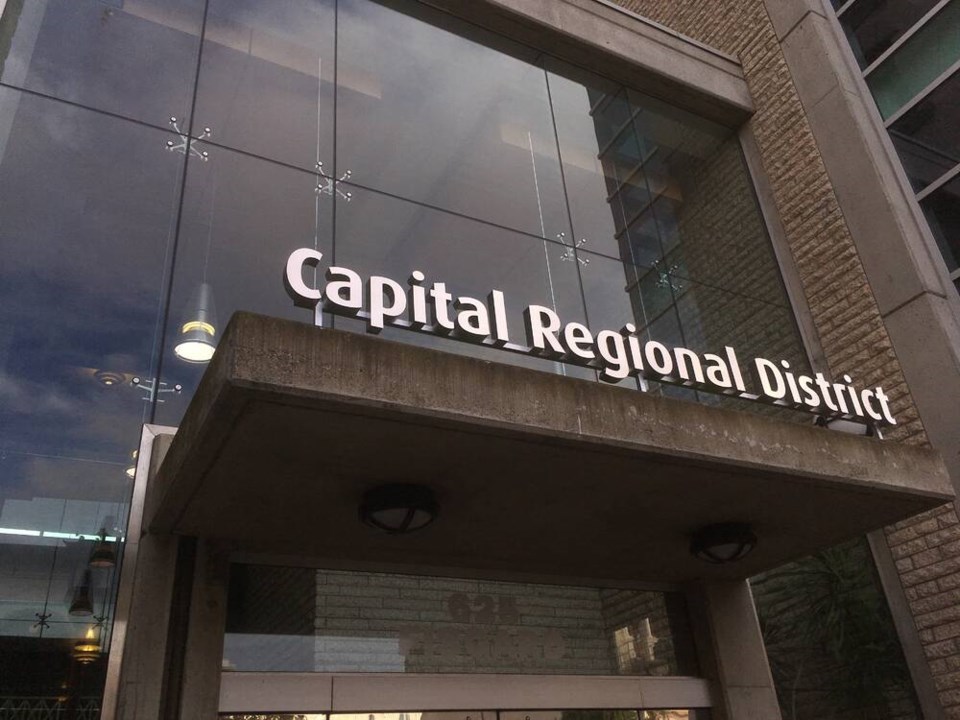A commentary by the B.C. director for the Canadian Taxpayers Federation.
The Capital Regional District is showing the fiscal restraint of a college frat house preparing for homecoming.
And with a farce of a public consultation process, the CRD also gets a failing grade on accountability. Taxpayers deserve informed consent.
The CRD wants to go into debt to the tune of $85 million, which won’t be fully paid off until the 2050s. That’s a long time and a lot of money hanging over the district’s head, with taxpayers on the hook for that big borrowing. It also lays the groundwork for massive amounts of interest to accumulate on that $85 million of principal.
Government debt is just deferred taxation. Sooner or later, it’ll have to be paid back with interest. For all levels of government, those interest charges mean tax hikes or cuts somewhere else.
And those tax hikes are coming. An average homeowner in the CRD will be on the hook for an extra $26 in taxes to the district if the borrowing is approved. To use the example of Saanich, taxpayers already pay an average of $550 per year towards CRD taxes. So, this would represent roughly a five per cent tax hike.
If going $85 million in debt doesn’t sound bad enough, the public consultation process reveals the district doesn’t actually want to hear from the folks who’ll be paying off this debt for decades. Taxpayers deserve accountability and informed consent, but that’s not what the CRD is going for.
The rules allow the CRD to borrow $85 million unless 10 per cent of electors in the district fill out a written submission specifically saying they don’t approve of the additional borrowing. That means 33,191 electors must submit a form by Monday, Feb. 5, and voice their concerns or the CRD can run up the credit card.
The electoral response form was made available on Jan. 3, while most families were still celebrating the holidays, not paying attention to the nitty gritty details of local government.
It’s a classic move in political communications to quietly slide through controversial policy during the holidays when voters are distracted and journalists are still trickling back in from vacation.
And this may be the most important issue of all: the process being pushed forward by the CRD is backwards. The onus should be on the government to get approval from residents if it wants to borrow money. Instead, the CRD is making taxpayers jump through hoops to stop its debt binge.
The CRD says the $85 million will be allocated on an “as-needed basis.”
“No specific projects are lined up for the funding,” according to CRD Chair Colin Plant.
That means the CRD doesn’t even know exactly what it’s going to spend the money on, but it wants the cash anyway.
The CRD bureaucrats vaguely say they will spend the borrowed cash on housing. But that holds less water than a colander. For starters, housing is a provincial responsibility. A regional district asking to borrow $85 million to pay for housing would be like Premier David Eby asking to borrow $2 billion to pay for a new military jet.
Beyond that, municipal bureaucrats are the least effective people imaginable when it comes to building anything, let alone housing. In many municipalities across British Columbia, building costs with municipal projects are more than twice as high per square foot compared to private sector builds.
If the CRD wants to make housing more affordable, it should reduce – not hike –property taxes. Bonus points: The District should take a hatchet to arduous and slow approvals and permitting processes.
The CRD doesn’t need to pick up the credit card. It needs a pair of scissors.
The CRD spent $690 million in 2023, up $44 million from the $646 million in 2022. That represents about a seven per cent increase in one year alone. With inflation sitting at just over three per cent in the same period, it’s clear that the CRD needs to start looking for ways to save money instead of running to the banks for loans to fund even more big spending.
The CRD owes it to taxpayers to take public consultation seriously. The onus shouldn’t be on residents to tell the government not to borrow money. The CRD should have to get informed consent before it borrows a dime.
>>> To comment on this article, write a letter to the editor: [email protected]



